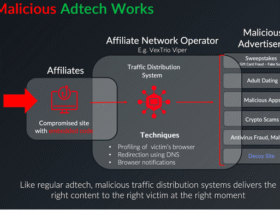Narcissistic abuse can leave survivors feeling lost and hurt. They struggle to find their self-worth and rebuild their online image. After such abuse, people often feel unmotivated and without purpose. But, there is a way to heal and take back control of one’s life.
Reputation Return is here to help. This online reputation management company offers support for those abused by narcissists. They help victims overcome their trauma, restore their online image, and take back their story.
Key Takeaways
- Narcissistic abuse can lead to a state of emotional turmoil and a sense of languishing.
- Reputation Return offers solutions for victims of smear campaigns and online abuse from narcissists.
- The company’s services can help survivors rebuild their self-worth and online presence.
- Comprehensive solutions are available for individuals seeking to heal and reclaim their lives.
- Reputation Return provides a path forward, guiding victims through the process of emotional recovery and online reputation restoration.
Understanding Narcissistic Abuse and Its Impact
Narcissistic abuse is a complex form of emotional and psychological manipulation. It can have long-lasting effects on its victims. This abuse often includes gaslighting, arrogance, withholding affection, and love. These actions are designed to control and maintain power over the victim.
Recognizing the Signs of Narcissistic Abuse
It can be hard to spot narcissistic abuse because the tactics are subtle and widespread. Signs include feeling self-doubt, confusion, and low self-esteem. Victims might also feel constantly criticized or invalidated.
They may also experience anxiety, depression, and trouble forming healthy relationships after the abuse.
Common Manipulation Tactics Used by Narcissists
- Gaslighting: Denying or minimizing the victim’s experiences and making them question their own reality.
- Arrogance and Entitlement: Displaying a sense of superiority and a belief that they are entitled to special treatment.
- Emotional Withholding: Intentionally withholding affection, praise, or support as a means of control.
- Love Bombing: Overwhelming the victim with attention, affection, and promises, only to later withdraw it.
- Insults and Verbal Abuse: Criticizing, belittling, and demeaning the victim to erode their self-worth.
- Isolation: Systematically cutting the victim off from their support system and resources.
The Psychological Impact on Victims
The effects of narcissistic abuse can be severe and long-lasting. Victims often feel worthless, struggle to trust others, and feel emotionally unstable. This can lead to mental health issues like anxiety, depression, and post-traumatic stress disorder.
The abuse can also harm the victim’s physical health. Symptoms can include headaches, sleep disturbances, and chronic pain.
“The effects of narcissistic abuse can linger for years, affecting one’s ability to trust, form healthy relationships, and maintain a positive sense of self-worth. Healing from this type of trauma requires a multifaceted approach that addresses both the mental and emotional wounds.”
Recognizing the signs of narcissistic abuse and understanding its impact is crucial. By building awareness and seeking support, victims can start to heal. They can begin to reclaim their lives and well-being.
Breaking Free from the Cycle of Abuse
Getting out of narcissistic abuse is tough but vital. It means spotting the abuse patterns, setting clear boundaries, and finding a strong support group. Victims often feel stuck, controlled, and alone. But, with the right help and plans, they can escape this cycle.
Setting Healthy Boundaries
Creating strong boundaries is key to leaving narcissistic abuse. This might mean cutting ties with the abuser, refusing their tricks, and focusing on your own health. Remember, the abuse is the abuser’s fault, not yours.
Building a Support Network
Having a supportive network is vital for healing. Look for trusted friends, family, or join support groups. Online therapy is also an option for those stuck at home.
Legal and Professional Resources
At times, you might need legal and professional help to deal with the abuse. This could mean talking to a therapist, getting help from a domestic violence advocate, or seeking legal protection.
Ending narcissistic abuse is hard but doable with the right support. By setting boundaries, building a strong support system, and getting professional help, you can start healing. This journey leads to reclaiming your power and a better future.
“The first step towards getting somewhere is to decide that you are not going to stay where you are.” – J.P. Morgan
Healing from Narcissist Abuse: Recovery Steps
Recovering from narcissistic abuse is a tough journey. The first step is to accept the abuse’s impact on your emotions. This can be hard because narcissists often make you doubt yourself. But, knowing the truth is key to healing.
Understanding why you blamed yourself is important. Look at your childhood and any patterns that let the narcissist control you. This helps you see why you believed false things about yourself.
Being kind to yourself is also crucial. Abuse makes you feel ashamed and unworthy. Through therapy and personal growth, you can learn to love and accept yourself.
- Acknowledge the reality of the abuse and its impact
- Explore childhood influences and underlying beliefs
- Cultivate self-compassion and challenge negative self-talk
- Rebuild confidence and self-worth through therapy and personal growth
- Surround yourself with a supportive network and engage in self-care activities
The path to healing from narcissistic abuse is hard, but it’s worth it. With the right help and support, you can find your strength again. You can come out of the abuse’s darkness stronger than ever.
“The journey of healing from narcissistic abuse is not linear, but it is possible. With time, patience, and the right support, survivors can reclaim their lives and find joy and fulfillment once again.”
Rebuilding Your Online Presence After Abuse
Rebuilding your online presence after narcissistic abuse is key to recovery. It means managing your digital footprint and protecting your identity. You might also use professional services to fight back against online attacks.
Managing Digital Footprints
Controlling your digital footprint is crucial. Look over any online content used against you during abuse. Reputation Return helps survivors tackle this, making your online space cleaner and more positive.
Protecting Your Online Identity
Keeping your online identity safe is vital after abuse. You might need to change privacy settings or remove personal info. Reputation Return’s experts offer advice and strategies to help you protect your online self.
Professional Reputation Management Services
Professional help can be a big plus in rebuilding your online image. Reputation Return provides services like content removal and social media management. Their team works to help you regain control of your digital identity and build a positive online presence.
FAQ
What is the impact of narcissistic abuse on victims?
Narcissistic abuse can make people feel unmotivated and without joy. It makes it hard for survivors to find their self-worth again. They often feel lost after being manipulated and isolated.
What are the common manipulation tactics used by narcissists?
Narcissists use many ways to control others, like gaslighting and insults. They also use love bombing and sabotage. Victims often feel bad about themselves and doubt their own thoughts.
How can victims break free from narcissistic abuse?
To escape narcissistic abuse, victims need to first recognize it. Then, they should set boundaries and seek help. Using a support system and therapy is key. It’s also important to stay away from the abuser and focus on healing.
For those who can’t leave their homes, online therapy is an option. It helps them get the support they need without risk.
What are the steps to recovery from narcissistic abuse?
Recovering from narcissistic abuse starts with facing the truth about the abuse. It’s about growing as a person and being kind to yourself. Therapy helps rebuild confidence and self-worth.
How can Reputation Return help in rebuilding an online presence after narcissistic abuse?
After narcissistic abuse, it’s important to manage your online presence. This means protecting your identity and possibly using professional services. Reputation Return helps survivors by offering solutions to counter online abuse.
They aim to help victims take back control of their online identity. This way, they can build a positive digital presence.















